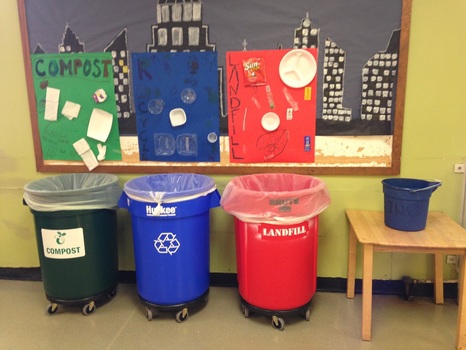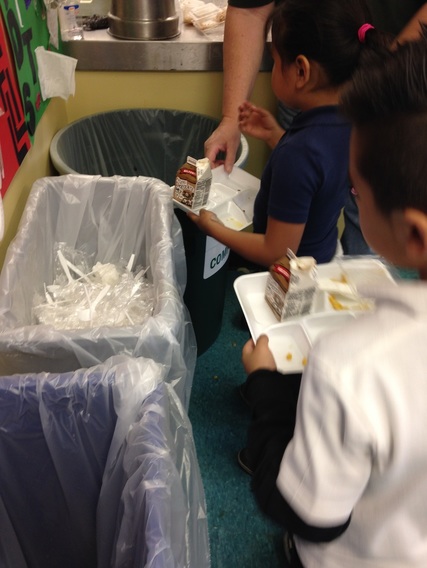
For the past six months, I have been working with five schools in the Kansas City, Missouri area to start cafeteria composting programs. My colleague, Gary Kannenberg with The Tellus Group, and I have been impressed with the speed at which students, teachers, cafeteria staff, and custodians have adjusted to the new process of sorting food and paper waste into a compost container, plastic into a recycling container, and everything else into a landfill container. Since the schools started composting in February, they have sent nearly 21 tons of food and paper waste to the compost facility Missouri Organic Recycling, to be made into “flower food” over a 10-week period.
The students, ranging in age from 3 years old to middle school, have embraced the new program because they understand that throwing food and paper into the trash is a waste of resources. Making compost is a better way to reuse those materials. Of course, the best option would be to have less food waste, and we are working on that side of it, too.
The schools involved in this pilot program are Smithville Primary Elementary, Fox Hill Elementary and New Mark Middle School (North Kansas City schools), and James Elementary and Border Star Montessori (Kansas City Public Schools). It is funded through a grant from Mid-America Regional Council Solid Waste Management District and Missouri Department of Natural Resources. Our hope is to scale up the program next year and get more schools involved!
The students, ranging in age from 3 years old to middle school, have embraced the new program because they understand that throwing food and paper into the trash is a waste of resources. Making compost is a better way to reuse those materials. Of course, the best option would be to have less food waste, and we are working on that side of it, too.
The schools involved in this pilot program are Smithville Primary Elementary, Fox Hill Elementary and New Mark Middle School (North Kansas City schools), and James Elementary and Border Star Montessori (Kansas City Public Schools). It is funded through a grant from Mid-America Regional Council Solid Waste Management District and Missouri Department of Natural Resources. Our hope is to scale up the program next year and get more schools involved!


 RSS Feed
RSS Feed
